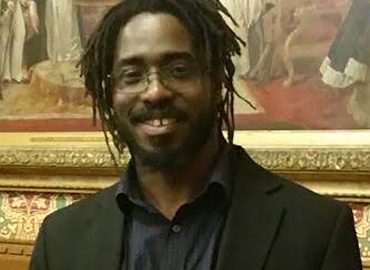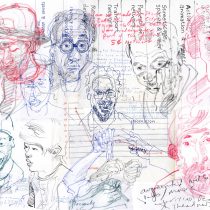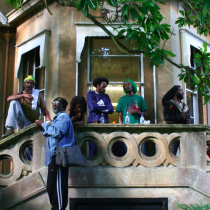
28.03.24 Digital Placemaking
The Emperor’s Pianola
The Emperor’s Pianola: How an Ethiopian royal family, and an antiquated music device, led to research into safe space and everyday life.

Associate Professor of Cultural Interdisciplinary Practice, University of the West of England. Shawn teaches into the BA and MA Photography and MA Research Practice. He is a photographer, writer and filmmaker and has made programmes for BBC, ITV and Channel 4. Recent research projects include Ethiopian Connections with the city of Bath, and artist responses in Bristol to the Edward Colston statue. His most recent project involved co-founding Imperial Voice Radio based at Fairfield House in Bath.
Principles relating to untold stories, community media and participatory practice underpin much of my work. My methodology is rooted in personal narratives and hidden histories and concerns the nature of everyday life, notions of home, belonging, and small narratives.
The Emperor’s Pianola: How an Ethiopian royal family, and an antiquated music device, led to research into safe space and everyday life.
Ethiopian Emperor Haile Selassie I came to live in the English city of Bath in Fairfield House in 1936 for four years, seeking a safe space from which to strategize to liberate his homeland from Benito Mussolini's aggressive invasion. Fairfield House became a safe place for the Emperor and his family, government advisors, and Ethiopian Orthodox clergy, making the quaint English city the site of the headquarters of the Ethiopian government in exile and state cultural institutions. In Fairfield House was a pianola, and the Emperor used to enjoy ‘playing' and listening to the various music scrolls with his family. This project explores the role of the Pianola in this dynamic domestic and political context, and the Emperor’s use of music as a means to create a sense of sanctity for his family, whilst simultaneously experiencing some of the biggest violent challenges of his life.
In this project I explore the legacy of the pianola and the Emperor’s contemporary influence in the city of Bath. Haile Selassie donated Fairfield House to the city’s elderly citizens in 1958, and the Pianola returned in 2013, along with 200 scrolls. I conducted interviews with the elder users of the house, using the narrative of the Emperor’s pianola and music choices as the starting point, to explore how the elders use music to create a sense of sanctity, notions of place and peace in their lives.
The story of the Emperor’s pianola has not been researched or written about before now.
The website for this project includes outputs which I produced during the lifetime of the Digital Placemaking Fellowship - https://emperorandthepianola.wordpress.com/
Articles by Dr Shawn Sobers

28.03.24 Digital Placemaking
The Emperor’s Pianola: How an Ethiopian royal family, and an antiquated music device, led to research into safe space and everyday life.

28.03.24 Digital Placemaking
by Dr Shawn Sobers , Paul Clarke , Will Taylor , Grace Quantock , Stephen Hilton , Roseanna Dias , TIM LYTC and Jon Dovey
Reframing Digital Placemaking - A conversation between the Fellows and Programme Director, Professor Jon Dovey, reflecting on the ideas and key themes to emerge from their work exploring the relationship between physical and digital places. Illustrations by Gary Embury

28.03.24 Digital Placemaking
Photograph by Shawn Sobers of seven people on the balcony at Fairfield House.